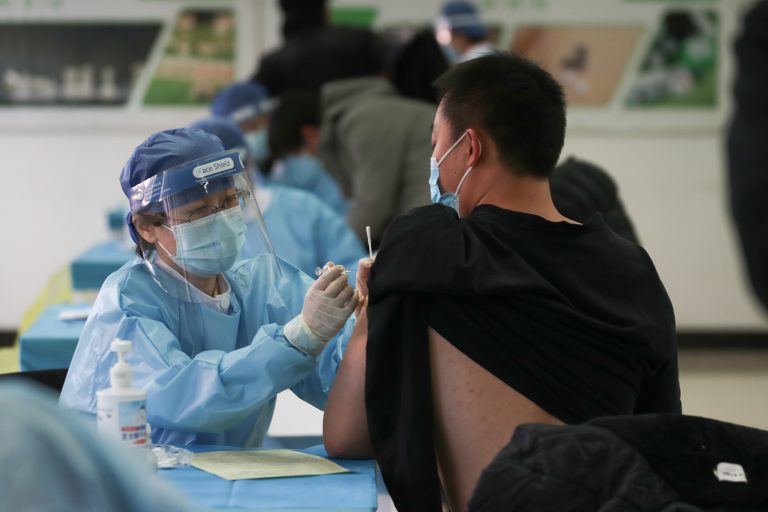Chinese authorities have announced that the provinces of Ningxia, Liaoning, Henan, Heilongjiang, Hebei, and the provincial-level regions of Beijing and Inner Mongolia are in “wartime mode” due to a spike in CCP virus infections. Public facilities have been closed and strict restrictions have been placed on travel.
The government has requested people to not travel during the upcoming Lunar New Year Festival on Feb. 12. In Meizhou City in Guangdong Province, the local administration has issued a notice stating that employees from state-run enterprises, government departments, and private companies cannot leave the city during Lunar New Year until they get approval from their respective management teams.
Chinese New Year travel interrupted
In an interview with The Epoch Times, Mr. Xu, who works in Guangdong, said that the government warning against New Year travel is an indication of the severity of the CCP virus outbreak.
“Usually at year-end, commoners all head home to reunite with families, so the Chinese New Year is the most important thing… They wouldn’t make such calls if things are not especially bad… The government is calling for people to celebrate the New Year locally… But if it comes to the point where they force people to stay where they are, then they would have completely lost control over the virus,” he told The Epoch Times.

In Nanpi County, Hebei Province, families with people who have recently traveled outside the area are being sent to quarantine centers. In Dongguang County, the outbreak is said to be “very severe.” In the city of Shijiazhuang, outbreaks continue to cause problems and authorities have asked people to remain inside their homes. Only medical staff or couriers with special passes are allowed to travel freely in the city. All grocery stores are shut down and people can only order food and other necessities online. As a result, food prices have spiked. To make things even worse, some stores are insisting that people buy several items together rather than ordering one or two items at a time.
Success
You are now signed up for our newsletter
Success
Check your email to complete sign up
In Beijing, a government order has suspended car-pooling services. All drivers need to get weekly DNA tests and must be vaccinated in order to be approved for work. In Shunyi District, officials have implemented the ‘14+7’ quarantine measures for visitors. Under this policy, they’re required to undergo observation for a period of 14 days. If they flew where others were confirmed to have contracted the virus, they will have to spend an extra seven days in observation.
A major political conference that was supposed to be held in Hebei has been postponed. People in Langfang City, which is home to 4.9 million residents, are currently under home quarantine. More than 20,000 people from Shijiazhuang City were recently transferred from their homes to designated quarantine areas.
The WHO is preparing to conduct its investigation into the origin of the coronavirus in China. They will first visit the city of Wuhan, the epicenter of the viral pandemic.
“I’ve worked on outbreaks mainly in the UK… And although in theory you could do it remotely being on the spot makes a big difference. Understanding how a place works and having direct contact with the individuals involved… I am going into this with an entirely open mind and the colleagues on the team I have managed to speak to are the same. This is a chance to go and find out the facts: what is available to know now and what lines of investigation might be fruitful in the future. I’m not sure a single trip will find all the answers. It may never be wholly sorted, but it is a start,” Professor John Watson, a British member of the team, told The Guardian.
Follow us on Twitter or subscribe to our email list















